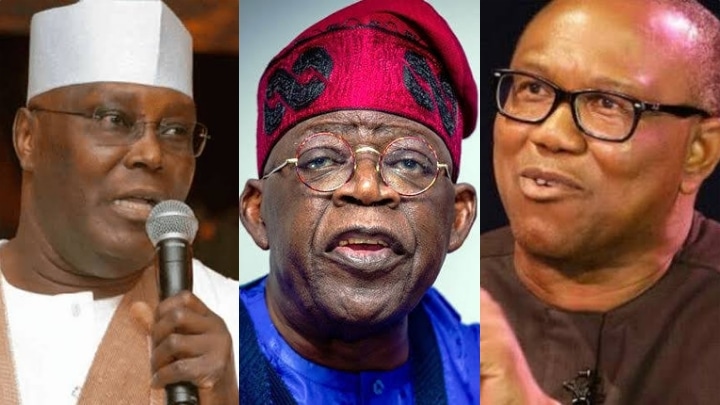Nigeria’s fragile democracy is under threat as major opposition parties, the Labour Party (LP) and the Peoples Democratic Party (PDP) intensify moves to ensure that President Muhammadu Buhari, announced the annulment of the Feb. 25 presidential election.
Recall that Tinubu was announced the winner of the hard-fought contest with 8,794,736 of the over 24 million votes cast in the election. Though the lowest votes by a winner since 1979, it is 8 percent higher than that of his closest rival, Atiku Abubakar of the PDP. Also, Peter Obi of LP was further behind with a 25 percent share of the ballots
While many world leaders have congratulated Tinubu as president-elect, many western media continue to echo the views of the Nigerian opposition and a section of the local media, which have been very critical of the election.
Battabox understands that the oppositions have been meeting various newsrooms editors to ensure that they use their platforms to discredit the election. The major complaint of the opposing parties is that the Independent National Electoral Commission (INEC) failed to upload screenshots of polling station results to a web portal, IReV, created for the purpose.
While the failure of INEC to do this is condemnable, it is surprising that some of the election results at the national legislative levels favorable to the opposition parties have been endorsed and celebrated.
Surprisingly, ex-President Olusegun Obasanjo, who in 2007 declared the election a do-or-die battle for himself and his party, also called for annulment.
SEE THIS:
- FLASHBACK: How Obasanjo Pioneered Election Fraud In Nigeria
- Bola Ahmed Tinubu: The Long Walk To Aso Rock
- 2023 Elections outcome: Peter Obi addresses world press conference
Battabox understands that the military cited failed elections as an impetus for the coup d’états of 1966 and 1983 that ended Nigeria’s earlier experiments with the democratic civil rule.
Already, there is a spate of military coups in Africa. On Jan. 24, 2022, the military deposed Burkina Faso’s President, Roch Kabore. Aside from dissolving the government (including the national assembly), they also suspended the constitution.
Before its long-serving leader, Omar al-Bashir was removed in 2019, Sudan had had the most coups and attempted takeovers amounting to 18, but only six were successful. Even Bashir came to power after a military coup in 1989.
On April 11, 2019, the military took over after an economic disaster in the country. Resident’s protest was first against the rising costs of living but quickly widened into demands for the removal of President Bashir.
After the death of President Idris Deby, the military seized power in Chad on Apr. 20, 2021, installing the late president’s son, Mahamat as interim president.
On Sept. 6, 2021, armed forces captured President Alpha Conde of Guinea after overnight gunfire exchanges, and Col. Mamady Doumbouya became Guinea’s interim president.
While Nigeria has since 1999 witnessed democracy, the country is still battling with various forms of challenges including, insecurity, corruption, and poverty, among others.
All of these make it fragile for the military to take over with the argument that they would uproot corrupt democratic leaders to welcome the coup’s ‘radical change.’
